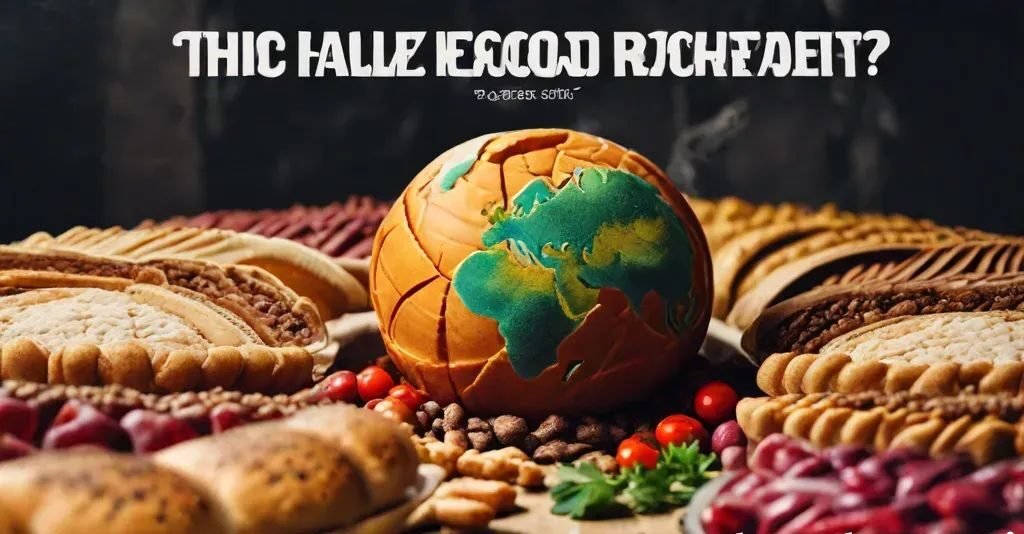2 Amazing Is The World Food Programme Legit Hacks
Introduction
What is the World Food Programme (WFP)?
The World Food Programme (WFP) is the United Nations food assistance branch established to combat Hunger and promote food security globally. With operations in over 80 countries, WFP is one of the largest humanitarian organizations in the world. It aims to end Hunger by 2030.

Relevance of WFP in Global Humanitarian Efforts
WFP is critical in responding to emergencies and providing food assistance to people affected by conflict, disasters, and climate change. Its mission aligns with the UN’s Sustainable Development Goals, particularly Goal 2: Zero Hunger is the world food programme legit
Purpose of the Article
This article explores whether the World Food Programme is a legitimate and effective organization. We will analyze its operations, impact, challenges, and criticisms to understand WFP’s legitimacy comprehensively.
Overview of the World Food Programme
History and Formation
The WFP was founded in 1961, following a proposal by U.S. President Dwight D. Eisenhower to create an international food aid organization. Initially, it was a three-year experimental program under the United Nations. However, its success led to the formal establishment of the WFP in 1963 is the world food programme legit
Mission and Objectives
WFP’s primary mission is to eradicate Hunger and malnutrition. Its objectives include providing emergency food assistance, improving nutrition, and building resilience among vulnerable populations is the world food programme legit
Key Programs and Initiatives
WFP operates various programs, including school feeding programs, nutrition initiatives for mothers and children, and food-for-assets programs, which provide food in exchange for work on community projects.
How the World Food Programme Operates
Funding Sources
Voluntary government, corporations, and individual donations primarily fund WFP. It also receives support from international financial institutions and private sector partners is the world food programme legit
Partner Organizations
WFP collaborates with various partners, including UN agencies, NGOs, and local governments. These partnerships are crucial for implementing its programs effectively on the ground.
Global Reach and Impact
WFP’s operations span across continents, with a presence in conflict zones, disaster-stricken areas, and regions affected by climate change. In 2022, WFP provided food assistance to over 100 million people worldwide is the world food programme legit
Evaluating the Legitimacy of the World Food Programme
Transparency and Accountability Measures
WFP has established robust transparency and accountability measures to ensure funds are used effectively. It regularly publishes financial reports, conducts independent audits, and engages in external evaluations.
Effectiveness in Crisis Response
WFP’s effectiveness in crisis response is well-documented. It has been pivotal in delivering food assistance during emergencies, such as the Syrian refugee crisis, the Yemen conflict, and the COVID-19 pandemic.
Independent Reviews and Audits
Independent reviews and audits conducted by organizations like the Office of Internal Oversight Services (OIOS) and external auditors have generally praised WFP for its operational efficiency and impact.
Success Stories and Impact
Case Studies of WFP’s Work in Different Regions
WFP’s Productive Safety Net Programme in Ethiopia has helped millions escape chronic Hunger. In Bangladesh, WFP’s school feeding program has improved nutrition and attendance rates.
Testimonials from Beneficiaries
Beneficiaries from conflict-affected areas often express gratitude for WFP’s timely assistance. For instance, Syrian refugees in Lebanon have credited WFP with helping them survive through food vouchers and cash transfers.
Recognition and Awards
WFP has received numerous accolades for its humanitarian work, including the Nobel Peace Prize in 2020, which recognized its efforts to combat Hunger and prevent the use of food as a weapon of war.
Common Criticisms and Challenges
Administrative and Operational Challenges
WFP faces challenges such as logistical difficulties in reaching remote areas, bureaucratic delays, and sometimes inefficiencies in resource allocation. These issues can affect the timeliness and effectiveness of food delivery.
Criticisms from Donor and Recipient Countries
Some donor countries have criticized WFP for lack of transparency in fund allocation, while recipient countries have occasionally raised concerns about food aid’s quality and cultural appropriateness.
Addressing Negative Publicity
WFP has addressed negative publicity by increasing transparency, improving stakeholder communication, and implementing reforms to address operational inefficiencies.
Expert Insights
Interviews with Humanitarian Experts
Experts in humanitarian aid, such as those from Oxfam and the International Rescue Committee, generally view WFP as a crucial player in global food security despite acknowledging its challenges.
Perspectives from Former WFP Employees
Former WFP employees often speak positively about the organization’s mission and impact, though they also note the need for continuous improvement in logistics and inter-agency coordination.
The Future of the World Food Programme
Emerging Challenges
WFP faces emerging challenges, including the increasing frequency of climate-related disasters, protracted conflicts, and global economic instability, which strain its resources and operational capacity.
Future Goals and Strategies
To address these challenges, WFP focuses on strengthening partnerships, leveraging technology for better food distribution, and advocating for more sustainable food systems.
Innovations in Food Assistance
WFP is exploring innovations such as blockchain technology for secure and efficient food distribution and drones for delivering aid to hard-to-reach areas.

Conclusion
Summary of Key Points
The World Food Programme is a legitimate and vital organization in the global fight against Hunger. Its extensive reach, effective crisis response, and commitment to transparency underscore its legitimacy.
Final Thoughts on the Legitimacy of WFP
While WFP faces challenges, its continuous efforts to improve operations and its significant impact on global food security affirm its status as a credible and essential humanitarian organization.
FAQs
Is the World Food Programme a legitimate organization?
The World Food Programme is a legitimate organization recognized globally for its humanitarian work and commitment to eradicating Hunger.
How is WFP funded?
WFP is funded primarily through voluntary donations from governments, private sector partners, and individuals.
What impact has WFP had globally?
WFP has significantly impacted the global community, providing food assistance to millions in crises and contributing to long-term food security initiatives.
What are the main criticisms of WFP?
WFP faces criticisms related to operational inefficiencies, transparency in fund allocation, and the cultural appropriateness of food aid in some regions.
How can individuals support WFP?
Individuals can support WFP by donating, raising awareness, or volunteering for related initiatives.

